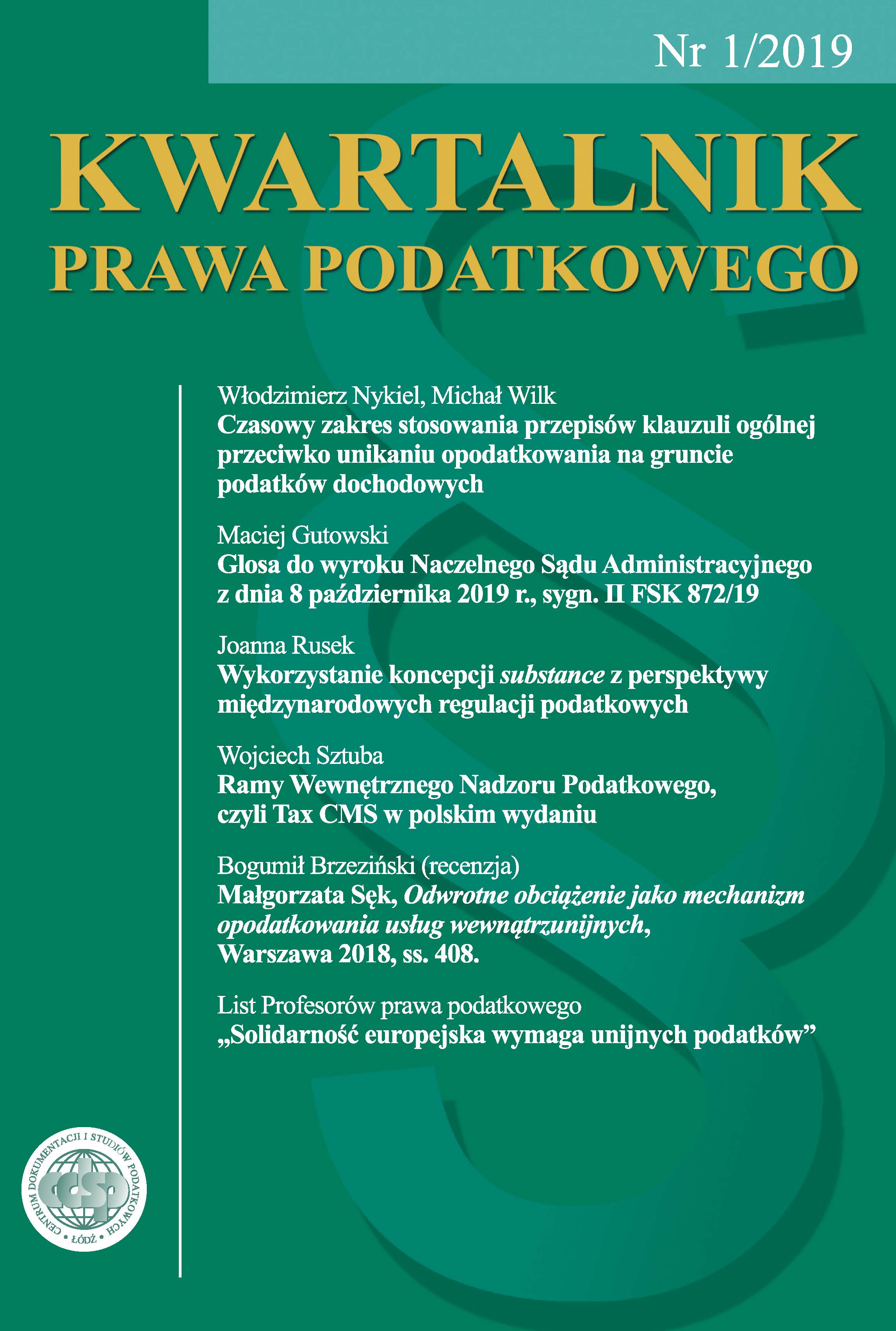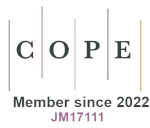Wykorzystanie koncepcji substance z perspektywy międzynarodowych regulacji podatkowych
DOI:
https://doi.org/10.18778/1509-877X.2019.01.03Słowa kluczowe:
unikanie opodatkowania, treść ekonomiczna, BEPS, Modelowa Konwencja OECDAbstrakt
Celem artykułu jest przedstawienie rozmaitych sposobów wykorzystania koncepcji treści ekonomicznej (substance) na gruncie międzynarodowym. Z tej perspektywy w pierwszej kolejności analizie zostały poddane prace prowadzone w ramach projektu BEPS. Rozważane było także posługiwanie się pojęciem substance przez Modelową Konwencję OECD. Biorąc pod uwagę powyższe regulacje, koncepcja treści – rozumianej jako tworzenie wartości przy uwzględnieniu rzeczywiście pełnionych funkcji, zaangażowanych aktywów, zatrudnionych pracowników, ponoszonego ryzyka różnego rodzaju – została uznana za szczególnie użyteczną dla przeciwdziałania negatywnemu zjawisku unikania opodatkowania.
Pobrania
Bibliografia
Action Plan on Base Erosion and Profit Shifting, OECD Publishing, Paris 2013.
Google Scholar
Aligning Transfer Pricing Outcomes with Value Creation, Actions 8–10 – 2015 Final Reports, OECD/G20 Base Erosion and Profit Shifting Project, OECD Publishing, Paris 2015.
Google Scholar
Countering Harmful Tax Practices More Effectively, Taking into Account Transparency and Substance, Action 5 – 2015 Final Report, OECD/G20 Base Erosion and Profit Shifting Project, OECD Publishing, Paris 2015.
Google Scholar
Developing a Multilateral Instrument to Modify Bilateral Tax Treaties, Action 15 – 2015 Final Report, OECD/G20 Base Erosion and Profit Shifting Project, OECD Publishing, Paris 2015.
Google Scholar
Konwencja między Rzecząpospolitą Polską a Stanami Zjednoczonymi Ameryki w sprawie unikania podwójnego opodatkowania i zapobiegania uchylaniu się od opodatkowania w zakresie podatków od dochodu, https://www.podatki.gov.pl/media/1910/20130213_konwencj_usa_pl.pdf (dostęp: 4.02.2020).
Google Scholar
Kosters B., Substance over Form under Tax Treaties, „Asia-Pacific Tax Bulletin” styczeń/luty 2013.
Google Scholar
DOI: https://doi.org/10.59403/3h9wkkh
Model Tax Convention on Income and on Capital: Condensed Version 2017, OECD Publishing, Paris 2017.
Google Scholar
Monsenego J., The Substance Requirement in the OECD Transfer Pricing Guidelines: What Is the Substance of the Substance Requirement, „International Transfer Pricing Journal” January/February 2014.
Google Scholar
DOI: https://doi.org/10.59403/3h9myhj
Multilateral Convention to Implement Tax Treaty Related Measures to Prevent Base Erosion and Profit Shifting, http://www.oecd.org/tax/treaties/multilateral-convention-to-implement-tax-treaty-related-measures-to-prevent-BEPS.pdf (dostęp: 4.02.2020).
Google Scholar
OECD Transfer Pricing Guidelines for Multinational Enterprises and Tax Administrations 2017, OECD Publishing, Paris 2017.
Google Scholar
Preventing the Granting of Treaty Benefits in Inappropriate Circumstances, Action 6 – 2015 Final Report, OECD/G20 Base Erosion and Profit Shifting Project, OECD Publishing, Paris 2015.
Google Scholar
Resumption of application of substantial activities for no or nominal tax jurisdictions – BEPS Action 5, OECD, Paris 2018.
Google Scholar
Savoia R., Hurdowar Y., Switzerland: Embracing the worldwide trend of increasing substance requirements, „International Tax Review”, https://www.internationaltaxreview.com/article/b1f9jxz7hbz15p/switzerland-embracing-the-worldwide-trend-of-increasing-substance-requirements (dostęp: 4.02.2020).
Google Scholar
Stewart M., Abuse of Economic Substance in a Digital BEPS World, „Bulletin for International Taxation” June/July 2015.
Google Scholar
DOI: https://doi.org/10.59403/3kwmfx6
Toit du Ch. P., Beneficial Ownership of Royalties in Bilateral Tax Treaties, IBFD, Amsterdam 1999.
Google Scholar
Pobrania
Opublikowane
Jak cytować
Numer
Dział
Licencja

Utwór dostępny jest na licencji Creative Commons Uznanie autorstwa – Użycie niekomercyjne – Bez utworów zależnych 4.0 Międzynarodowe.
PlumX metrics









